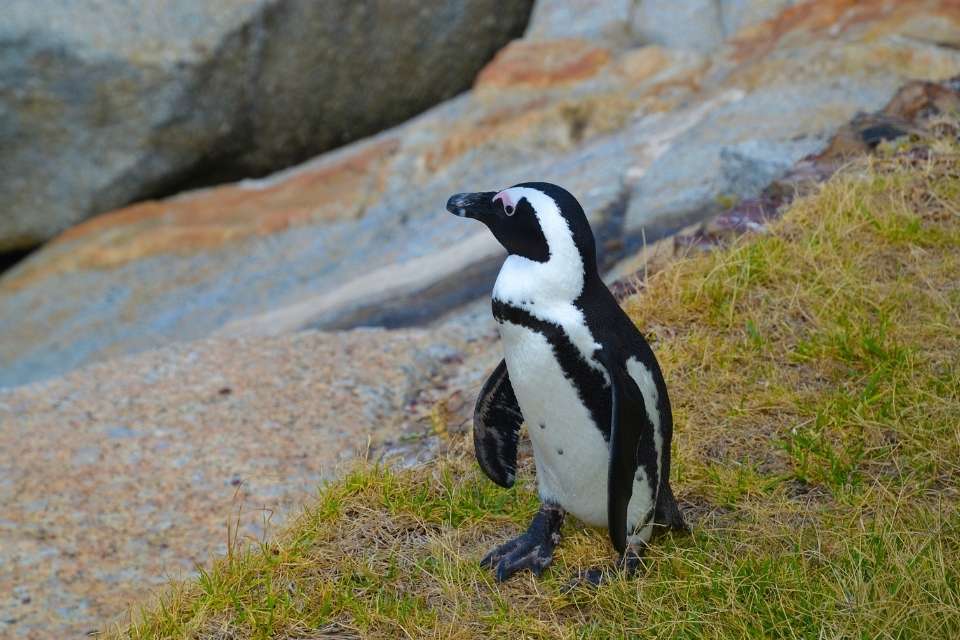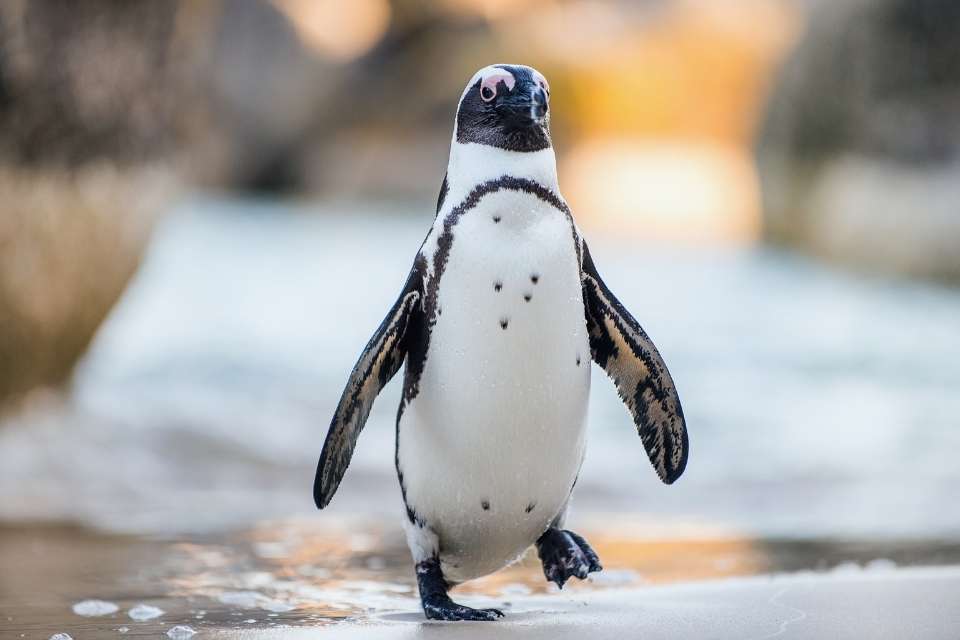Penguins are fascinating creatures that capture our imagination with their unique appearance and behaviors. We often wonder about the details of their lives, including their diet. One common question that arises is, do penguins eat plants?
The short answer is no, penguins do not eat plants. Their diets consist mainly of krill, squids, and fish. Different species of penguins have slightly different food preferences, with some primarily feeding on krill and squids, while others focus on fish.
Penguins catch their prey with their bills and swallow it whole. They rely on their vision while hunting, and the bioluminescence of their prey may aid them in locating their food. Penguins typically feed at sea, venturing as far as 900 km away from their colonies in search of food.
Penguins have adapted to their marine environment in many ways. They participate in multispecies feedings, where they force prey to stay near the surface, making it easier for them to catch.
They also undergo annual fasting periods during breeding seasons and molting periods. To prepare for these fasting periods, penguins build up a fat layer that provides them with energy. Even penguin chicks fast before shedding their juvenile feathers.
It is important to note that penguins play vital roles in supporting both marine and terrestrial ecosystems. While they do not eat plants, they contribute nutrients from the ocean to the land, fertilizing the landscape.
They also serve as prey for various predators, maintaining the balance of the food chain.
Key Takeaways:
- Penguins primarily eat krill, squids, and fish.
- They rely on their vision to hunt and may be aided by the bioluminescence of their prey.
- Penguins fast during certain periods, building up a fat layer to provide energy.
- They do not eat plants, but they play important ecological roles as fertilizers of the land and prey for predators.
- Conservation efforts are crucial to protect penguins and their habitats.
Penguin Diet and Feeding Habits
Penguins have a diverse diet that varies depending on their species and habitat. Most penguins predominantly feed on small fish, krill, and squids.
Penguins living in temperate to tropical regions tend to focus on fish as their primary food source, while those in colder environments rely more on krill. Additionally, squids, which are typically solitary creatures, also form part of the penguin diet.
Penguins are active hunters and engage in group or shoal hunting behavior, rather than waiting for prey to come to them. They skillfully use their beaks to capture and swallow prey whole.
Penguins are well-adapted for swimming and can stay underwater for several minutes, with record-breaking dives lasting up to 20 minutes.
When it comes to hunting, penguins primarily rely on their vision, although it remains a mystery how they effectively locate prey in darkness or at great depths. To hydrate themselves, penguins ingest seawater along with their food.
To maintain salt balance in their bodies, penguins possess mechanisms to excrete excess salt.
Penguins’ diverse diet consisting of small fish, krill, and squids demonstrates their adaptability and resourcefulness as skilled hunters.” – Expert from the South African Penguin Conservation Society
Geographic Distribution and Habitat of Penguins
Penguins are fascinating creatures that predominantly inhabit the Southern Hemisphere. They can be found in various regions, including South Africa, Chile, Peru, Australia, New Zealand, and the Galapagos Islands.
When we think of penguins, we often picture them in icy habitats, such as around Antarctica. And it’s true – well-known species like the emperor penguins, adélie penguins, chinstrap penguins, and gentoo penguins primarily live in these cold environments.
However, penguins are adaptable and can also thrive in warmer climates. They can be found frequenting the sandy and rocky shores of tropical islands. Some adventurous penguins, like the Galapagos penguins, even venture above the equator.
Penguins play a vital role in supporting both marine and terrestrial ecosystems. When they hunt and consume seafood, they carry the plant nutrients from the ocean, including nitrogen, phosphorus, and organic carbon, back to the land.
This process helps to fertilize the surrounding landscape, benefiting the growth of plants and other organisms.
Additionally, penguins serve as an important food source for various predators, both in the cold and hot climates they inhabit. They are part of a complex web of life, contributing to the overall balance and health of their ecosystems.
Conservation Status of Penguins
The conservation statuses of penguin species vary from “least concern” to “endangered,” according to the International Union for Conservation of Nature (IUCN). Commercial fishing, bycatch, climate change, pollution, and habitat degradation pose threats to all penguins.
Threats to Endangered Penguins
Some of the most endangered penguins include the yellow-eyed penguins, erect-crested penguins, African penguins, Northern rockhopper penguins, and Galapagos penguins. The Galapagos penguins currently have the lowest population numbers, with around 1,200 mature individuals left in the wild.
Importance of Penguin Conservation
Conservation efforts are crucial to protect penguin populations and their habitats. In addition to preserving the diversity of penguin species, successful conservation outcomes also benefit the overall health of marine ecosystems. Penguins are an integral part of the food chain, serving as a vital food source for various predators.
Conservation is not only about saving individual species but ensuring the ecological balance that sustains our planet. By protecting penguins, we are safeguarding the delicate web of life in our oceans and contributing to the well-being of the entire ecosystem.
Effective conservation strategies for penguins include establishing protected areas, implementing sustainable fishing practices, reducing pollution, and raising awareness about the importance of preserving these iconic birds. By working together, we can secure a brighter future for endangered penguins and ensure their survival for generations to come.
Role of Penguins in Ecosystems
Penguins play a crucial role in ecosystems as they contribute to the overall balance and health of their habitats. Despite their seafood diet, penguins also have a significant impact on land through their plant consumption habits.
They serve as important carriers of plant nutrients from the ocean to the land, playing a vital role in fertilizing the landscape.
When penguins consume marine organisms such as krill, squids, and fish, they ingest plant nutrients like nitrogen, phosphorus, and organic carbon. These nutrients are then deposited on land through penguin excrement, enriching the soil and fostering the growth of vegetation. The presence of penguins can lead to increased plant productivity, creating a more vibrant and diverse ecosystem.
The Importance of Penguins in the Food Chain
Penguins also function as a key component of the food chain. They serve as prey for a wide range of predators, including leopard seals, orcas, seabirds, pumas, mongooses, and crabs. These predators rely on penguins as a valuable food source, especially during times when other prey may be scarce.
Not only do penguins provide nourishment for predators in cold and hot climates alike, but their presence also supports the population dynamics of these predator species.
The abundance of penguins helps sustain populations of higher-level predators, ensuring the proper functioning and balance of the ecosystem.
Penguins, with their unique feeding habits and behaviors, play a vital role in maintaining the delicate equilibrium of their ecosystems. By consuming seafood and carrying plant nutrients to the land, they provide essential fertilization to support plant life and serve as a nutritious food source for a diverse range of predators.
- Penguins contribute to the nutrient cycle by transporting plant nutrients from the ocean to the land.
- They enrich the soil, leading to increased plant productivity.
- Penguins serve as prey for various predators, supporting their populations and maintaining balance in the food chain.
Understanding the role of penguins in their ecosystems is crucial for conservation efforts. By protecting penguin populations and their habitats, we can ensure the continued health and stability of these unique and valuable environments.
Conclusion
In conclusion, penguins have a diverse diet consisting primarily of krill, squids, and fish. Their food sources may vary depending on the species and their habitat. While some penguins focus on krill and squids, others primarily eat fish.
However, it’s important to note that penguins are not known to consume plants, as their bodies are not adapted for digesting vegetation.
Penguins play a significant role in their ecosystems as fertilizers of the land and prey for various predators. They carry plant nutrients from the ocean to the land, providing valuable fertilization to the landscape. Additionally, they serve as a vital food source for predators such as leopard seals, orcas, seabirds, pumas, mongooses, and crabs, contributing to the overall balance and health of their ecosystems.
Conservation efforts are crucial for the protection of penguins and the maintenance of the health and balance of their habitats. Commercial fishing, bycatch, climate change, pollution, and habitat degradation pose significant threats to penguin populations.
Therefore, it is essential to implement measures to mitigate these threats and ensure the long-term survival of penguins and their ecosystems.
FAQ
Do penguins eat plants?
No, penguins do not eat plants. Their bodies are not adapted for digesting vegetation.
What do penguins eat?
Penguins primarily eat krill, squids, and fish. Their diet varies depending on the species and their habitat.
Where do penguins live?
Penguins are predominantly found in the Southern Hemisphere, with species inhabiting regions such as South Africa, Chile, Peru, Australia, New Zealand, and the Galapagos Islands.
What is the conservation status of penguins?
The conservation statuses of penguin species vary from “least concern” to “endangered,” with threats including commercial fishing, bycatch, climate change, pollution, and habitat degradation.
What role do penguins play in ecosystems?
Penguins play a crucial role in ecosystems by carrying plant nutrients from the ocean to the land, fertilizing the landscape. They also serve as prey for various predators, contributing to the overall balance and health of their ecosystems.
What are the food sources for penguins?
Penguins primarily rely on krill, squids, and fish as their main food sources.


